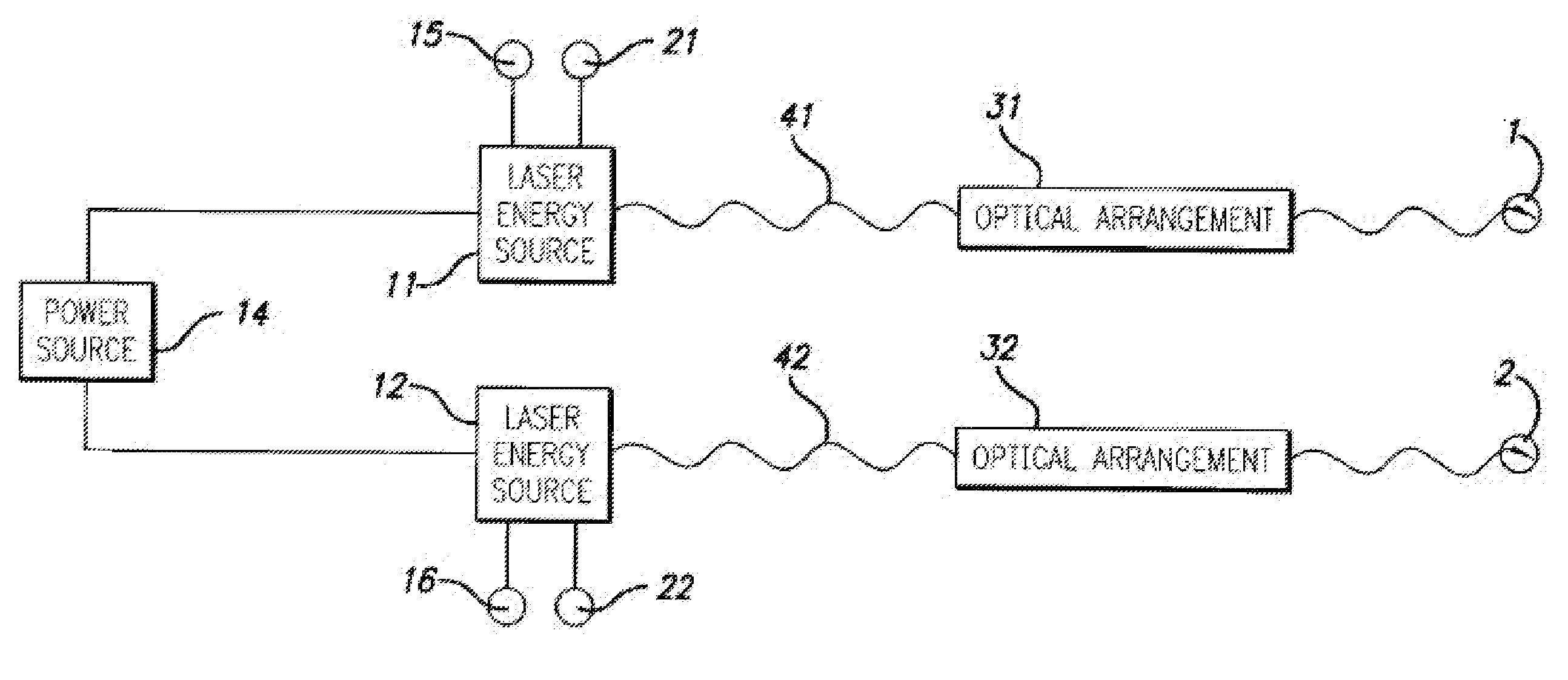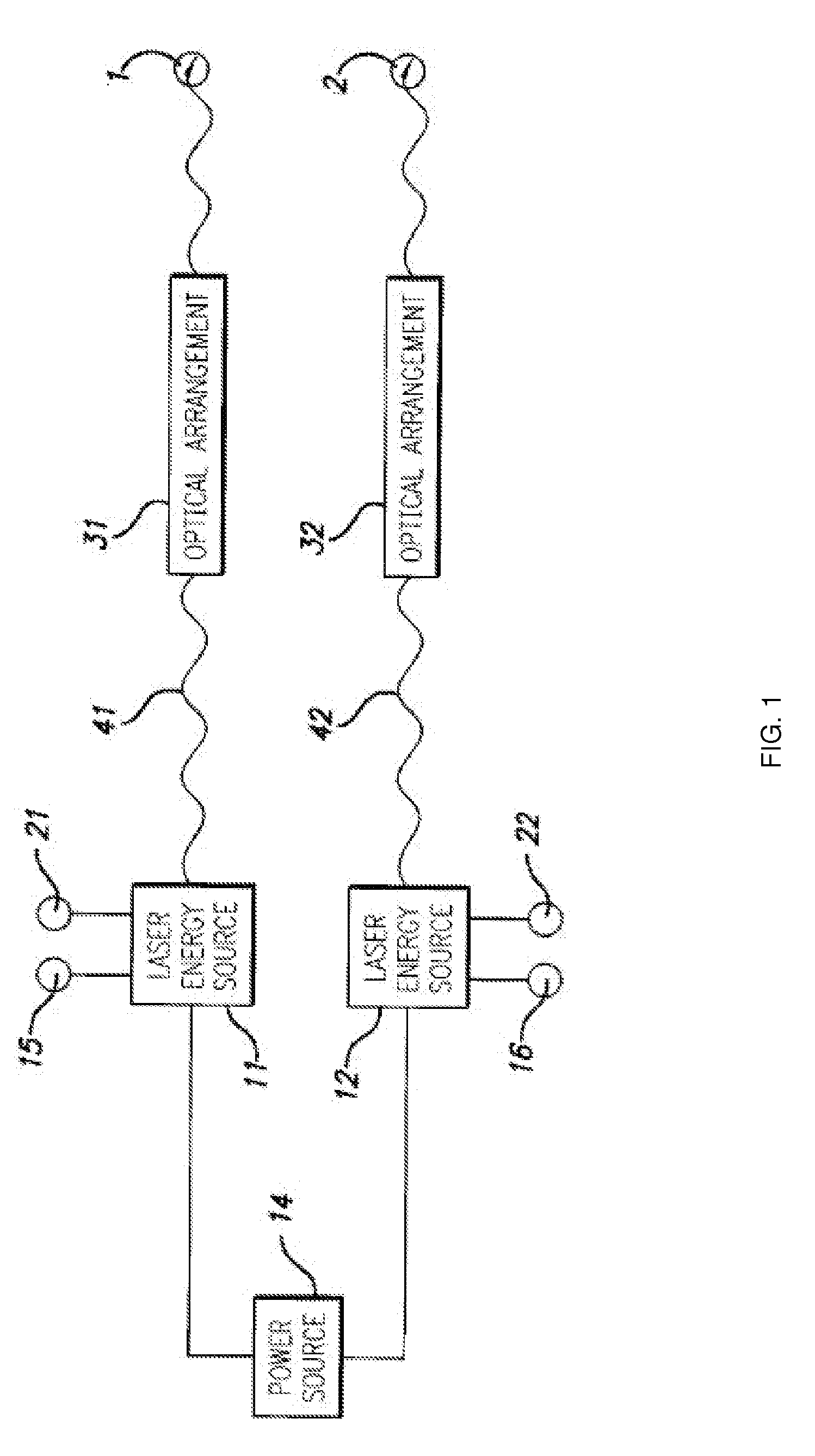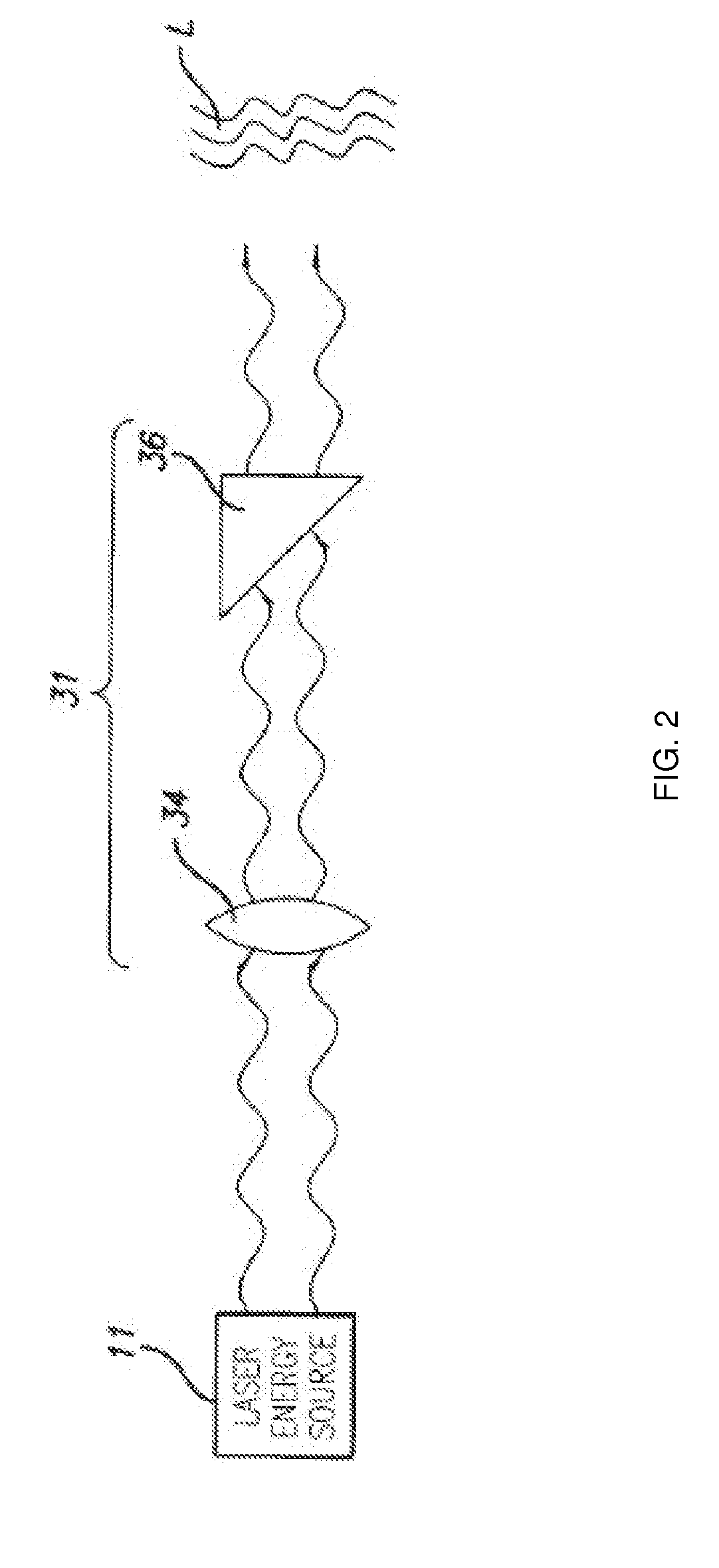Fungal Infection Therapy Method with Low Level Laser
a laser energy and laser technology, applied in the field of laser therapy, can solve the problems of pain, discomfort, disfigurement, physical and occupational limitations, and the inability to treat the infection with low level laser energy, and achieve the effect of preventing re-infection
- Summary
- Abstract
- Description
- Claims
- Application Information
AI Technical Summary
Benefits of technology
Problems solved by technology
Method used
Image
Examples
Embodiment Construction
[0024]Referring to the drawings, there are illustrated a plurality of laser devices that may be used to perform the inventive methods herein, which are methods for treating OM infections of the skin or nails. FIG. 1 shows, schematically, the preferred electrical and electromagnetic arrangement of the laser device, in which a first laser energy source 11 and a second laser energy source 12 are connected to a power source 14. The power source 14 preferably provides direct current, such as that provided by a battery, but may instead provide alternating current, such as that provided by conventional mains power, that is then converted to direct current. Switches 15, 16 are connected to the laser energy sources 11, 12 respectively and control the period of time the laser light is generated. These laser energy sources can be energized independently or simultaneously which, throughout this specification, refers to acts occurring at generally the same time.
[0025]The laser energy sources 11,...
PUM
 Login to View More
Login to View More Abstract
Description
Claims
Application Information
 Login to View More
Login to View More - R&D
- Intellectual Property
- Life Sciences
- Materials
- Tech Scout
- Unparalleled Data Quality
- Higher Quality Content
- 60% Fewer Hallucinations
Browse by: Latest US Patents, China's latest patents, Technical Efficacy Thesaurus, Application Domain, Technology Topic, Popular Technical Reports.
© 2025 PatSnap. All rights reserved.Legal|Privacy policy|Modern Slavery Act Transparency Statement|Sitemap|About US| Contact US: help@patsnap.com



